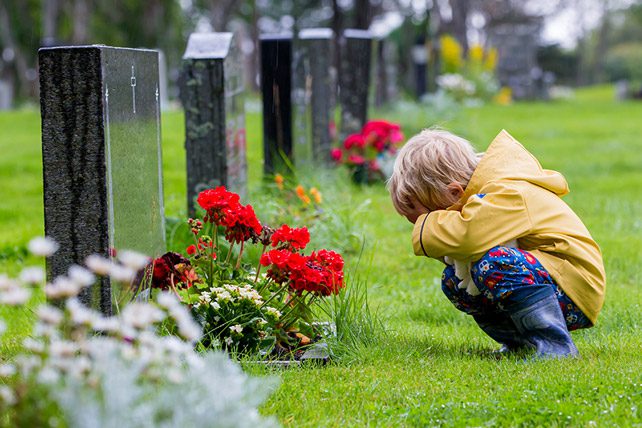One of the more difficult things I have had to do in my years of pastoral ministry is talk with kids about death. Explaining death and sorrow to kids has a profound influence on kids and a refining influence on us.
Recently a friend of mine gave me a book to read written by Jonathan Gibson entitled The Moon is Always Round. The book tells the story of his family dealing with the loss of their baby at 39 weeks. Dr. Gibson, a professor of theology, explained to his three-year-old son the goodness of God through a powerful metaphor of the shape of the moon we can see versus the shape the moon is always.
Dr. Gibson would often ask his son what is the shape of the moon and he would respond that it was a crescent; his dad would ask, what shape is it always? His son would reply, “Dad, the moon is always round.” Dr. Gibson would ask what does that mean? His son would say, “God is always good.”
What a profound metaphor. To have a metaphor that is biblically faithful and continually available is a gift and mercy. There is a part of the moon that we can see, the sorrows we face, but no matter the shape, the reality is that the moon is round because God is always good.
What Gibson is saying is that we see the face of the moon as half, full or crescent. But the shape of the moon we can see is not always the shape of the moon. The moon, no matter what we can see, is always round. He uses this illustration to show us that we don’t always see everything God is doing. We see parts but what we can’t always see is what is really true. Just like the moon’s shape never changes, God’s nature never does either. The moon is always round, and God is always good.
In a recent podcast, Jonathan Gibson recounts the conversation that led to the creation of his book. I highly recommend it.
Talking to our kids is important because death and sorrow are unavoidable and inevitable. We live in a culture that avoids death, but even in our greatest sorrows, we can and should point our kids to the goodness of God.
We live in a world that deifies youth and runs from death. We live in a culture obsessed with cheating death because they are convinced that this life is all there is. We have this idea that God is limited if he exists at all, but we are limitless because of medical advancements and scientific discoveries. Scripture tells us the truth that we are limited. Our days are literally numbered by God, and God is limitless in his care and in his person.
Christians fall victim to this thinking because the materialistic secular worldview is the air we breathe. C. S. Lewis said that everything in this life is marked by death. In A Grief Observed, Lewis talks about how his life was marked by the death of his wife.
You tell me, “She goes on.” But my heart and body are crying out, come back, come back. . . . But I know this is impossible. I know that the thing I want is exactly the thing I can never get. The old life, the jokes, the drinks, the arguments, the love-making, the tiny, heartbreaking commonplace. On any view whatever, to say “H. is dead,” is to say “All that is gone.” It is a part of the past. And the past is the past and that is what time means, and time itself is one more name for death.
Lewis is talking about something he had grown to understand because of the love he had for his wife. That death is pervasive that death will eventually claim everything and everyone we love. The problem is not if we will die but when. This is not something you hear much about in our modern culture. We don’t want to admit that we are dying and the thing we love will all pass away. Death reminds us that this world is not our home that this world is not all that there is but we avoid death in the hope that death will avoid us.
Matt McCullough in Remember Death, points to the power of life over death. Death’s power has been destroyed and even had its hold turned back on itself because of the resurrection of Christ. McCullogh says, “Jesus draws our attention to the grave to break our attachment to foolish hope in false gods, but not to pull us back from joy. He would rather return the good things of life to their proper place in our minds and hearts: they are gifts, not gods.”

